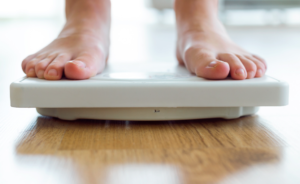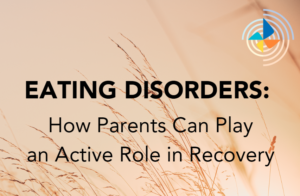Anorexia Nervosa
People with anorexia nervosa (AN) usually have a great fear of gaining weight. They may be obsessed with losing weight and being thin. They eat very little, even when hungry. Their bodies begin to starve because they are not getting the nutrients they need. People with AN often have a distorted body image. They may insist that they are too fat, or that some parts of their bodies are too big, even when family and friends know that they are dangerously underweight.
The symptoms of AN vary. Not everyone shares that they are afraid of gaining weight or becoming fat. Some people insist they are healthy, despite being at a dangerously low weight. People behave in many different ways when they struggle with eating, try to hide weight loss or avoid weight gain.
A person with AN may:
- keep, hide, pick at, crumble or throw away food
- cut food into small pieces or move it around the plate
- spend much of their time focusing on food, reading recipes, preparing food for others
- wear baggy clothes or layers of clothing to hide weight loss, or to keep warm
- over-exercise (exercising even when it interferes with other activities, at inappropriate times, or despite injuries or other medical complications)
- withdraw from friends and become secretive
- engage in binge-eating episodes and/or purging (vomiting or other ways of trying to control weight/shape after eating)

Everyone who is diagnosed with AN is at a dangerously low weight. They may have lost a lot of weight or failed to gain weight in normal growth and development. Low weight causes many complications and many of those problems will resolve when they gain weight. But, some of the complications can be permanent, especially for those who stay at a low weight for a long time, or who develop an eating disorder at a young age.
Common complications of AN include:
- anxiety, mood swings, depression
- irritable
- weak, lack of energy
- dizzy, headaches
- low blood pressure
- stomach or intestinal problems
- low body temperature
- loss of bone density
- hair loss or thinning
- soft, fine hair that grows on the face and body (lanugo)
- tooth pain
- dehydrated
- breathless
- slowed heart rate
- abnormal heartbeat or heart attack
- stomach takes too long to empty
- kidney failure
- infertile, unable to have children
- dry, yellow skin
- joint pain
- swollen hands or feet
- insomnia
- changes to hormone levels
- (for girls and women) irregular or no menstrual periods
- (for boys and men) low testosterone levels
AN can lead to many medical problems. You may not notice the effects of starving immediately, but it can still do serious damage to the body. Anorexia nervosa can result in death and is a mental health disorder with one of the highest mortality rates. Young people with anorexia nervosa are 10 times more likely to die than other people their age.



